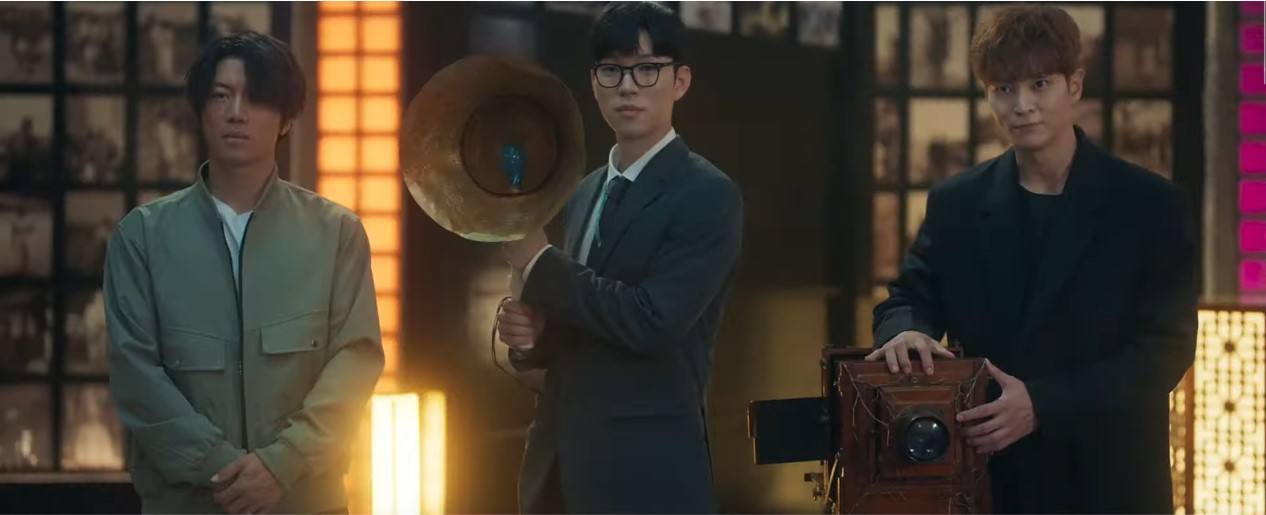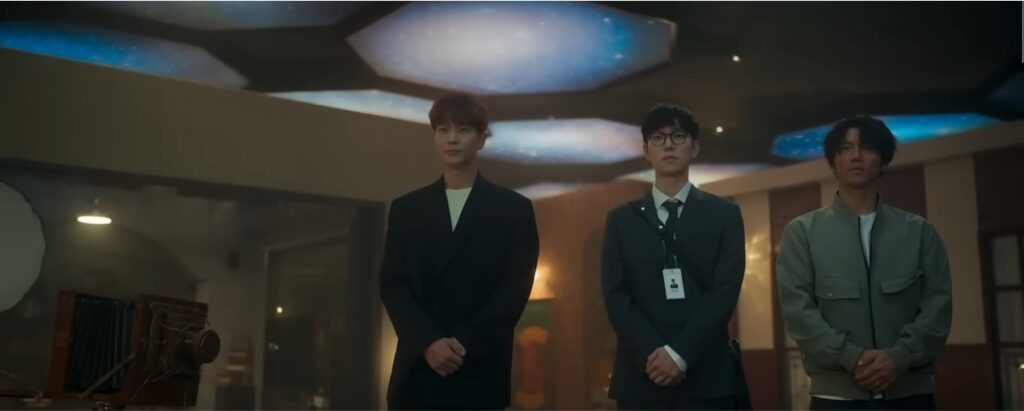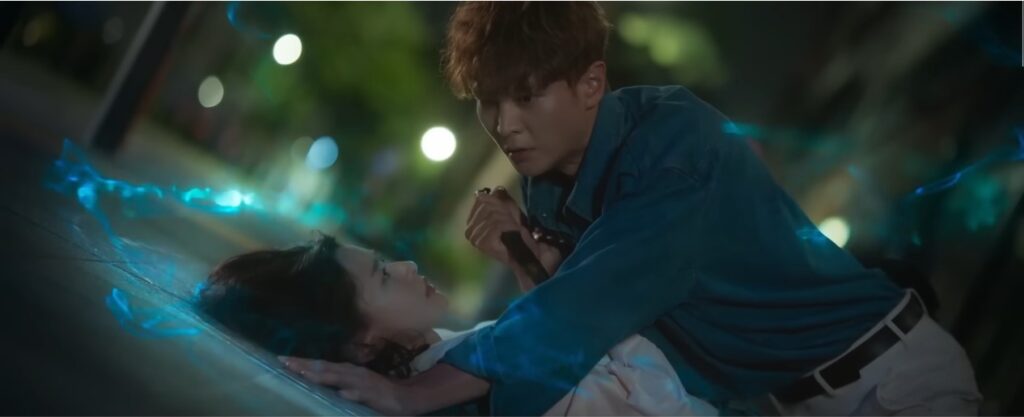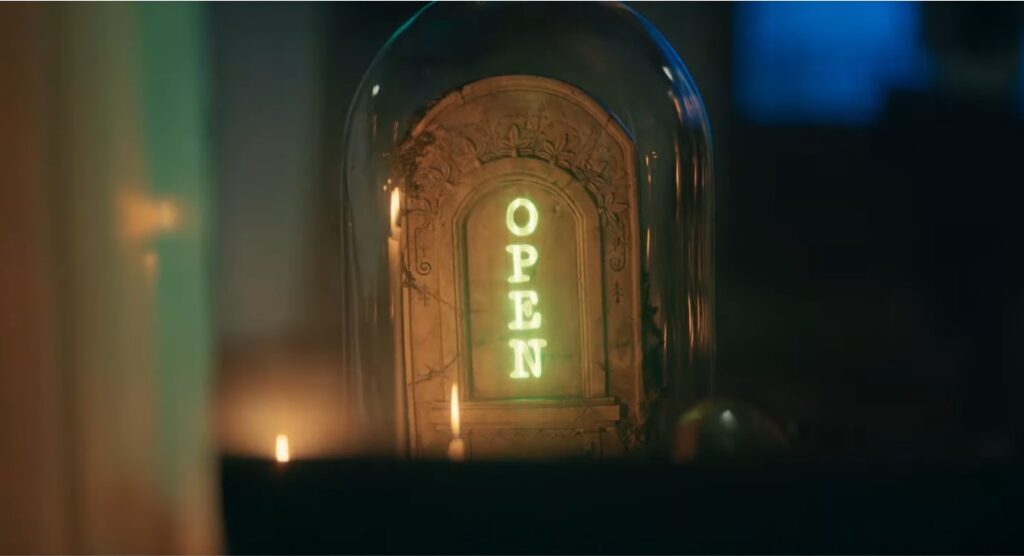
The supernatural is not a fresh theme for K-dramas with works like Hotel Del Luna, A Korean Odyssey, and all-time classic Goblin leaving their marks on the industry. That being said, The Midnight Studio brings its own twist to the genre. A series that tugs at heartstrings with moving tales while adding a dash of comedy, romance, and camaraderie into the mix, it is a drama worth investing time and emotions into.
The Midnight Studio stars Joo Won as Seo Ki-joo, a 34-year-old photographer with an unusual job profile and a curse that dictates his death when he turns 35 years old. He inherits an antique family camera, only to find himself taking portraits for the dead in a studio that only opens its doors at night–hence the title of the series. On the other end of the character spectrum, Kwon Nara plays Han Bom, an upright, candid, and reckless attorney. The lives of these two intertwine following their respective encounters with their clients.
Note: The rest of this review contains plot spoilers.
For those gearing up to watch this drama, make sure to keep a pack of tissues close by. The stories of those who visit Ki-joo’s studio are tearjerkers, ranging from bittersweet farewells to downright tragic experiences. One of the most hard-hitting episodes has to be Han Bom bidding goodbye to her beloved grandmother. The two once made a casual promise to admire the flowers come next spring, but spring never arrives as Han Bom’s grandmother passes away before the seasons change. In a heartbreaking final farewell, Ki-joo and his sidekicks stage a gorgeous scene of spring for Han Bom and her grandmother.
With an unfulfilled promise now resolved, Han Bom’s grandmother leaves for the netherworld in peace. This sense of regret and missed opportunities forms a significant part of The Midnight Studio’s plot, with Ki-joo offering the living or the dead one last chance to convey their final words to someone on the other side. The drama is certainly a lesson about treasuring the present and our loved ones, but there is more to be gained from the series.
As the story delves further into the lives of the two main characters and those around them, it becomes evident that choice is the crux of many of their experiences. The development of Ki-joo’s two sidekicks–the diligent Go Sung-ho (Yoo In-soo), with his long bucket list, and ex-cop Baek Nam-gu (Eum Moon-seok), fixated on apprehending a certain felon–elucidates this aspect of the drama. Most evidently, they have chosen to remain in the mortal world due to unfulfilled desires. Yet, it is their eventual decision at the end of the drama that reflects the importance of choosing one’s path despite facing an inevitable state of death.
Sung-ho meets his end due to overworking under an abusive superior. Out of spite, he spends his time pranking new hires who take his desk. This goes on until he meets Kim Ji-won (Lee Bom-sori), the lady he was supposed to meet on a blind date when he was alive (and also Han Bom’s friend). Ji-won takes Sung-ho’s place at the company after her miraculous recovery from cancer, only to be subjected to the same oppressive workplace treatment. The two end up in an unusual romance of the living and dead, but their differences drive a rift in their relationship. Tensions run high as Sung-ho’s good-natured attempts to take revenge on their foul superior land Ji-won in more trouble.
Eventually, Sung-ho presses Ji-won with the question, “Are you going to give up everything, including your health, happiness, and everything else?” As the two resolve their differences, they each come to make a conscious choice despite the unpredictability of their circumstances. Indeed, the future is a blank for Ji-won as she faces a potential relapse of her illness. Similarly, Sung-ho is unsure about how long he can remain in the mortal world. Despite such looming clouds in the distance, the two choose firmly to value their lives and each other.
The two main characters experience the same journey of choices. Ki-joo and Han Bom discover the “safe zone” that repels ghosts when they are close together. This realization kicks off their first phase of choosing whether to stick close by to each other, or to remain distant strangers. They eventually reach an understanding through twists and turns, and they draw closer to each other in physical and emotional distance. Han Bom makes a choice to be a reprieve for Ki-joo, and they fall in love with each other.
The highlight of their decision-making comes toward the end of the series, where hefty choices have to be made. Han Bom decides to let Ki-joo leave for somewhere far away when he is finally free of the curse plaguing his family. On the other hand, she willingly undertakes the very same curse that haunted Ki-joo. Despite her choice, Ki-joo chooses to brave the netherworld to save her from the curse. Grave decisions are made one after the other in the face of the seemingly impossible. Han Bom waits for Ki-joo’s return from the netherworld, though it is unlikely for any living person to make it back alive. Ki-joo risks his life in the netherworld to return the camera even if it means that he might never return to the world of the living.
Death looms in every corner and behind every decision made, but neither of the main characters forsake their individual will out of despair. The bold and firm choices made by Ki-joo and Han Bom are their attempts at subverting what seems to be inevitable or impossible. They are rewarded with miracles as Ki-joo finds his way back to the living with the help of a young ghost he once helped in the mortal world, and the couple is reunited.
Even the dead are given the chance to carve their own paths into the afterlife, reflecting the conscious choice to move on from whatever unfulfilled wishes they had in the living world. The most striking of these characters would be Ki-joo’s sidekick, Nam-gu, who almost becomes an evil spirit in his care for his beloved wife. This love becomes thwarted when he finds out about his wife’s affair and her disappointment at his lack of affection when he was alive. Violence and rage consume Nam-gu, but he eventually chooses to let go of his anger. He comes to terms with his wife’s emotional state and frees her from her lingering memories of him. Even if the truth and death are unchangeable, the individual is indubitably given the choice to respond for the better rather than remain trapped by negativity.
Thankfully, the grimness of The Midnight Studio is balanced out by a dash of comedy and camaraderie, especially from Ki-joo’s sidekicks. Sung-ho is hilarious in his jittery and panicky nature as he lets out frightened exclamations. His fear of ghosts as a ghost makes everything funnier, while Nam-gu’s deadpan comments deliver a different flavor of comedy to audiences. As a trio, Ki-joo and his two buddies often resolve depressing incidents with a light-hearted twist. The tight friendship between Ji-won and Han Bom is another heartwarming aspect of a series filled with horror and sadness. The two offer each other comfort and encouragement, offering audiences a much-needed reprieve from the terror of ghosts and spirits.
One other alluring element of The Midnight Studio has to be the stark plot twist at the end. At the very start of the drama, Han Bom is the victim of corruption and unjust means at the workplace. She is fired from her post as a prosecutor after an attempted whistle-blowing attempt about a judge’s twisted judgment on a case. This very case resurfaces in the second half of the series with dire consequences. A ghost that goes to Ki-joo gets involved and a foul story of abuse of authority unfolds. The mystery behind the deaths of Han Bom’s parents and Ki-joo’s uncle is also revealed through this grim case, and the audience gets insight into Seo Ki-joo’s fateful meeting with Han Bom as children. The mastermind of all the cover-ups and corruption is revealed to be none other than the judge that Han Bom crossed, but the shock factor lies in the grand reveal of his son–the police officer who has gained the trust of the main characters and audiences alike since the start of the show. Kudos to this drama for doing an excellent job of tying up all the loose ends in a thrilling climax.
If there is one flaw to The Midnight Studio, it has to be the rather unconvincing development of romance. Han Bom and Ki-joo leap from strangers to lovers without much emotional build-up. They start as complete strangers compelled to stick close to each other out of necessity–mainly for Han Bom to repel the ghosts haunting Ki-joo. Over the course of their many supernatural encounters, they certainly develop friendship and camaraderie. Han Bom gains the ability to see ghosts and comes to understand Ki-joo’s plight. They save each other from near-death accidents, but it seems a far stretch when Han Bom suddenly finds herself falling in love with Ki-joo.
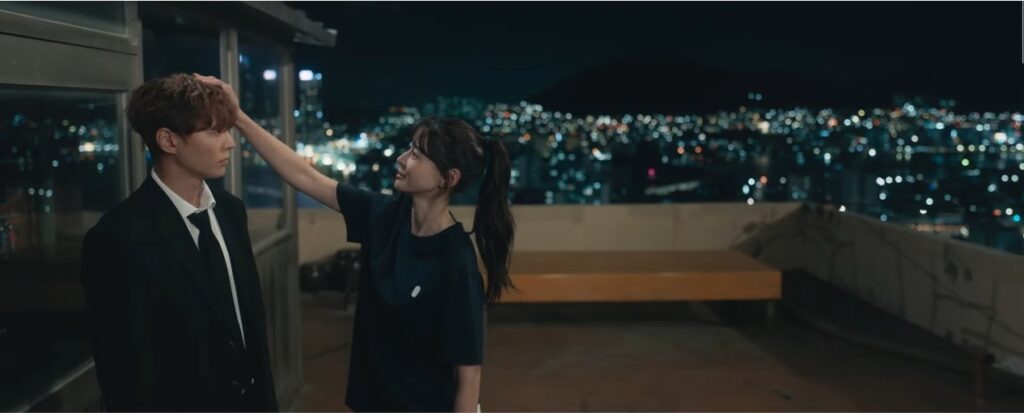
Ki-joo rejects Han Bom’s advances initially, but the two still end up as a couple with Han Bom offering acts of encouragement and reassurance to Ki-joo. She pats his head and tells him that he has done well–performative acts of love that needed more emotional development to ground. She pushes with her feelings despite the refusals she receives, and Ki-joo eventually yields in what seems to be a need for affection from many years of solitude. Nonetheless, it was much easier to ride the rest of the plot by simply accepting that the two were in love somehow. The story itself necessitated the facet of love between the two for a more impactful ending, especially with the two choosing to sacrifice themselves to save the other and their dedicated pining for each other while apart. Internalize that the two are in love, no questions asked, and the drama’s second half will be as equally enjoyable as the first half.
In an established genre of K-dramas, The Midnight Studio has delivered an entertaining and (all in all) well-written flavor of the supernatural. The music for this drama is stellar, with Elaine’s “I Wonder Why” playing at the most emotional moments and making my tears fall uncontrollably. In a sense, The Midnight Studio is an echo of this striking tune. In the face of the inevitable in life, we may “wonder why” many times about traces of the past, regrets, and the people who have left us. Even so, we may make our choices like the characters in the drama; we can carve out a better path for ourselves despite our circumstances, “so that [we] can make it through the long night.”
